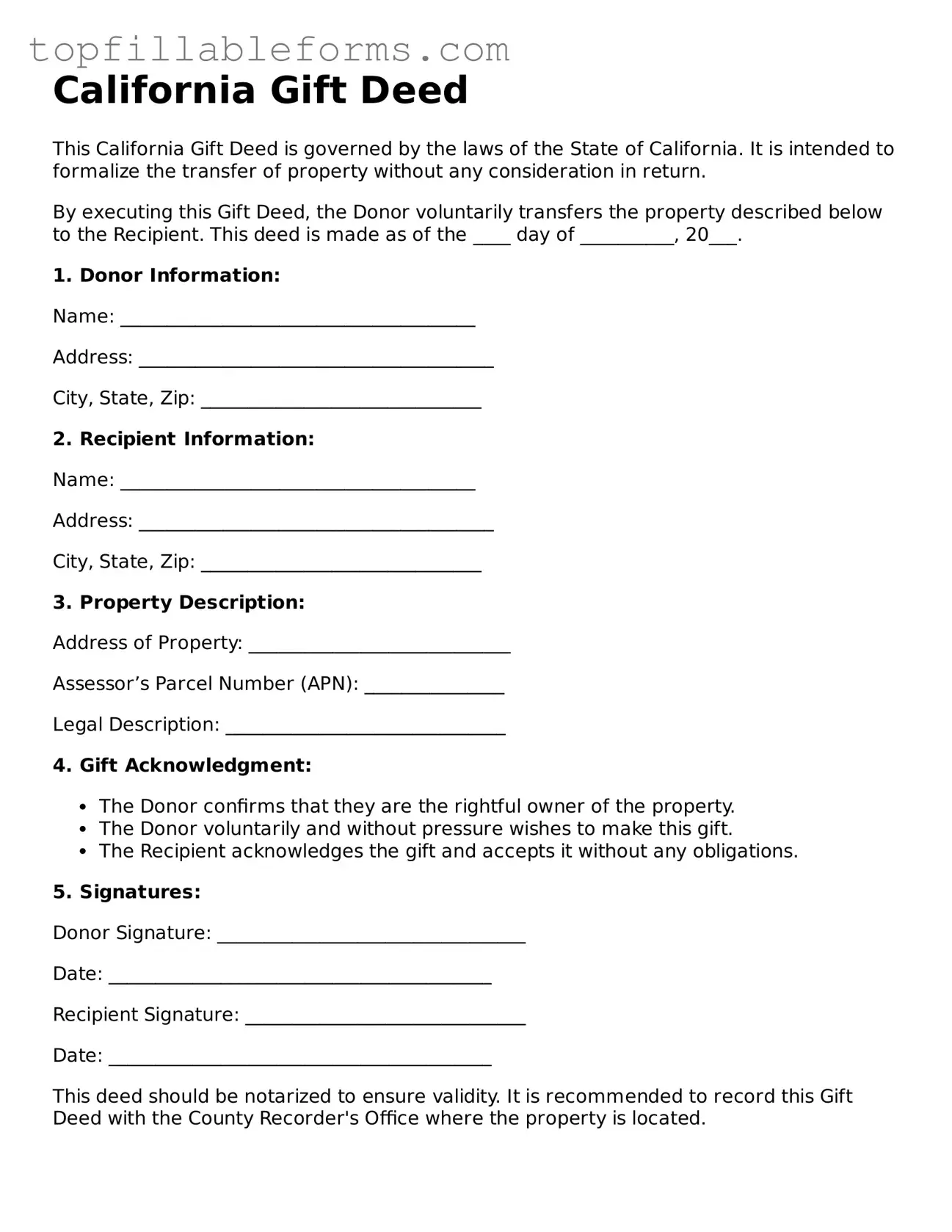Attorney-Verified Gift Deed Template for California
A California Gift Deed form is a legal document used to transfer ownership of property from one individual to another without any exchange of money. This form serves as a way for individuals to give property as a gift, ensuring that the transfer is documented and recognized by the state. Understanding the requirements and implications of this form is essential for both the giver and the recipient.
Open Gift Deed Editor Here

Attorney-Verified Gift Deed Template for California
Open Gift Deed Editor Here
Finish the form now and be done
Finish your Gift Deed online by editing, saving, and downloading fast.
Open Gift Deed Editor Here
or
▼ PDF File
